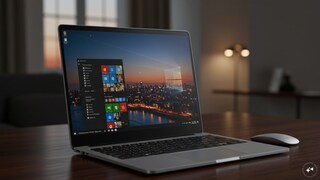Google Pixel 10 Could Launch Without These Advanced Features In 2025: Know More

Windows 10 official support ends in October this year but Microsoft is giving people the option to extend that support for up to three years. Yes, the company realises that millions of Windows 10 PCs that cannot run Windows 11 will have to be junked for a new model, so you can keep using Windows 10 with company updates up until 2028.
Sounds like a good deal, right? Well, the company is going to profit from this change by charging its customers an yearly fee which keeps on increasing if you continue using the machine for more than one year. The Extended Security Updates (ESU) program is the model that delivers these benefits and in some cases you can even sign up for free.
Windows 10 Free Update Support: How It Works
Microsoft has shared a detailed post on the changes coming with Windows 10 support officially ending this year. The ESU program for the regular Windows users offers one year support which costs them $30 (Rs 2,550 approx) which is quite nominal. We’re not sure how much people in India will have to pay for the extension.
Having said that, the company also has a free way for you to get this update, which it says includes redeeming 1000 Microsoft Reward points or if you backup all your data to the Windows Backup cloud app.
“Once you select an option and follow the on-screen steps, your PC will automatically be enrolled. ESU coverage for personal devices runs from October 15, 2025, through October 13, 2026," as pointed out by Microsoft chief Yusuf Mehdi in this post.
And how does one get these points? The company says you need a Microsoft account and earn points by using Bing to search the web, shop at the Microsoft Store, play Xbox games, and complete other tasks. That does look simple but getting 1000 points will need heavy activity, especially before the October 2025 deadline closes in.
The ESU program clarifies that you will only get security updates for the extended support, and no new features will be available.
Most people still rely on Windows 10 for their PCs, which is the main reason why Microsoft had to backtrack on its earlier plans. And buying a Windows 11 PC does not come cheap, especially if you want it with the latest hardware. So, paying a nominal fee to extend Windows 10 support allows these users to continue using their system and eventually upgrade when the market prices settle down.